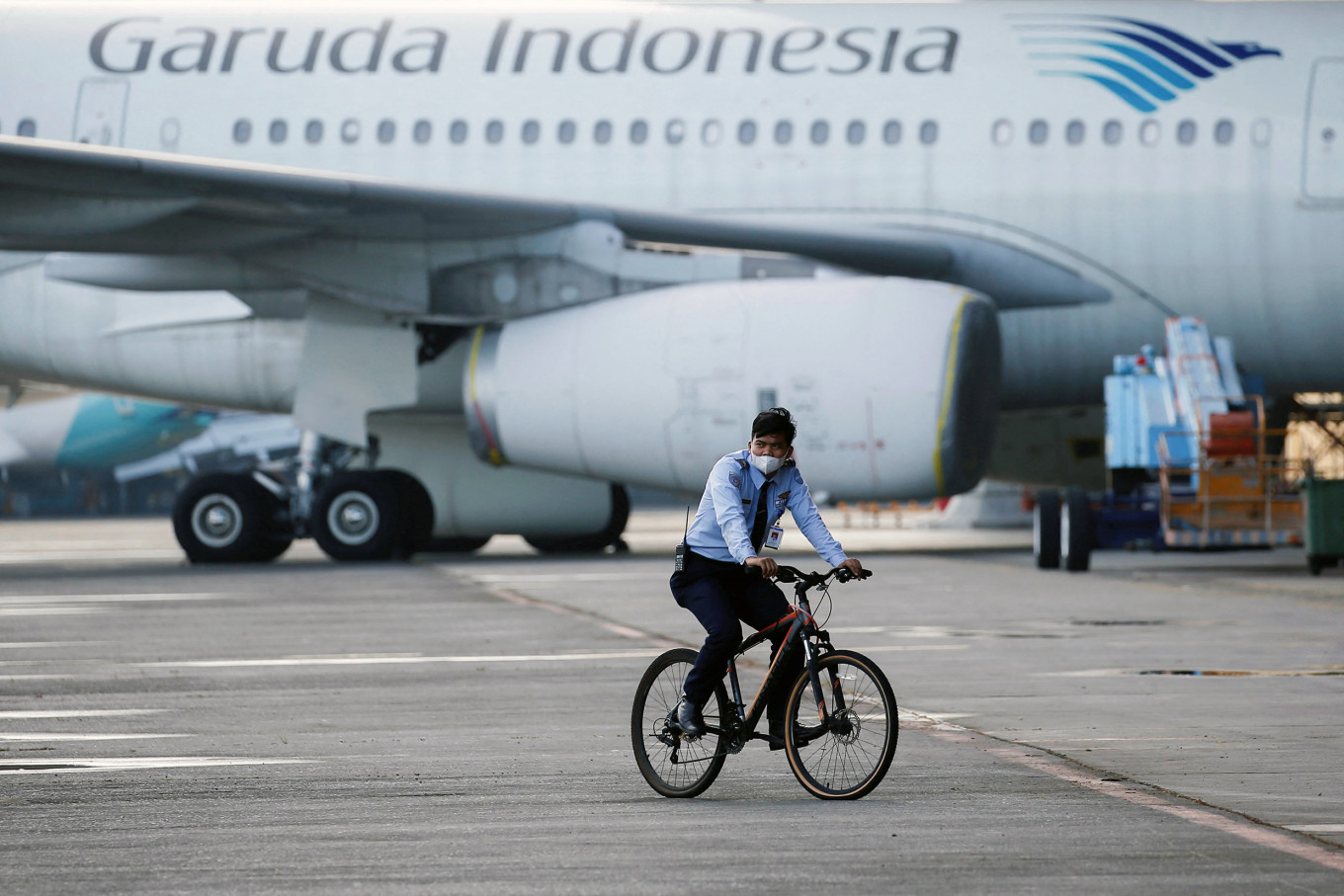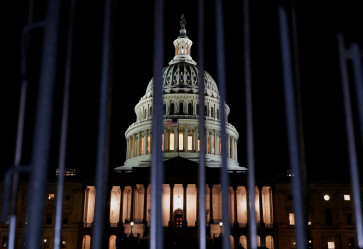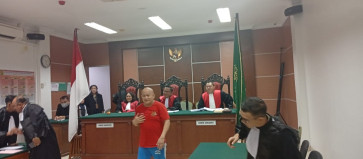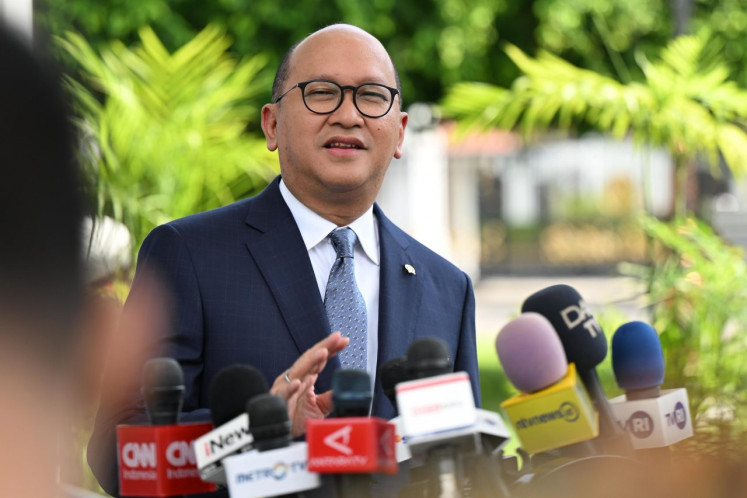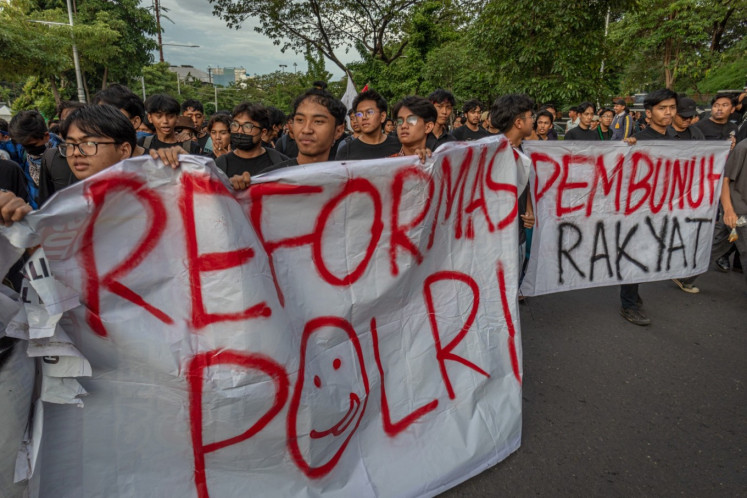Popular Reads
Top Results
Can't find what you're looking for?
View all search resultsPopular Reads
Top Results
Can't find what you're looking for?
View all search resultsHigh oil price hampers recovery of Indonesian airline industry
Prices of aviation fuel at Indonesia’s three busiest airports were up more than 60 percent year-on-year at US$1.04 per liter in the first two weeks of April.
Change text size
Gift Premium Articles
to Anyone
S
urging oil prices present a new challenge for airlines seeking to get back on their feet amid eased COVID-19 restrictions and are expected to delay the industry’s recovery.
The high cost of aviation fuel and air ticket price caps have compelled domestic airlines to cut flights so as to maintain profitability, and a recently announced permission for carriers to surcharge customers may only help to some extent as it could hit demand.
Prices of aviation fuel at Indonesia’s three busiest airports -- Soekarno Hatta, near Jakarta; Ngurah Rai in Bali and Juanda in Surabaya -- were up more than 60 percent year-on-year at US$1.04 per liter in the first two weeks of April, according to data from state-owned oil giant Pertamina.
The Indonesian National Air Carriers Association (INACA) said such high prices were disrupting a recovery hoped to conclude in 2024 with domestic air travel returning to the pre-pandemic level of 78.73 million passengers annually.
“So, this situation has slowed the airline industry's recovery. Maybe it could also push [the recovery] back by one or two years, we don’t know yet,” INACA secretary-general Bayu Sutanto told The Jakarta Post on April 12.
Read also: Global oil shock reaches Indonesia
The rise in aviation fuel prices reflects a surge in international oil prices, with the benchmark Brent price increasing roughly 65 percent to $103 per barrel over the same period, countryeconomy.com data show.
At the same time, airfare price caps for domestic economy-class flights have remained unchanged since the issuance of Transportation Ministry Decree No. 106/2019 three years ago. Such flights comprise the bulk of air traffic.
Bayu went on to say that airlines were definitely booking losses at oil prices above $80 per barrel.
He said fuel accounted for roughly 30 to 35 percent of total airline costs. Every 10 percent increase in aviation fuel prices translated to a 3 percent increase in total costs, effectively wiping out airlines' typically thin profit margins at between 1.5 and 3 percent. In response, airlines have cut back flights on nonprofitable routes.
In an apparent bid to take the edge off the financial pressure caused by the high oil prices, the Transportation Ministry has allowed airlines to temporarily impose a surcharge for domestic economy class flights.
Read also: Govt allows higher airfares in response to fuel price hike
The decision announced on Tuesday is set to take effect on Monday and be reviewed every three months. Under the decree, airlines are allowed to exceed the usual price caps on airfares by up to 10 percent for jets and 20 percent for propeller planes.
INACA and some aviation experts had been urging the government to temporarily allow airlines to impose a fuel surcharge without the need to wait for oil prices to remain high for 90 consecutive days, as required under previous rules.
Bayu from INACA said on April 12 that such a long wait time jeopardized companies’ cash flow, while Garuda Indonesia CEO Irfan Setiaputra said the national flag carrier was waiting for approval from the Transportation Ministry to adjust ticket prices.
“We also hope this will not affect our [debt] restructuring process,” Irfan told the Post on April 12.
After the government’s decision, however, INACA appeared to be unsure about whether airlines would take advantage of the option to impose a surcharge. "While this is quite helpful, let's see how long the increase in the price of oil and avtur will last," Bayu told the Post on Wednesday.
Read also: Sri Mulyani says high oil prices weighing on state budget
Possible solutions
Jakarta-based aviation consultant Gerry Soejatman said on April 12, before the Transportation Ministry’s announcement of the surcharge, that the government should revise price floors and ceilings for air tickets to let airlines adjust prices based on market conditions.
“What can the government do? It can let go of the market. Don’t be scared of market mechanisms. This is also for the sake of educating consumers,” Gerry told the Post.
An adjusted price ceiling meant airlines could set higher prices during the peak season, allowing them to build up cash reserves for low seasons, he added.
This option was better than exemptions from the obligation to pay for airport or ground handling services, which would only strain the service providers’ finances.
However, the Transportation Ministry dashed hopes for market-led prices in its announcement on Tuesday, with spokeswoman Adita Irawati noting in the statement that the government had not changed its general policy on the price structure for airfares as the upper and lower bounds of the allowed range remained in place, except for the aviation fuel components.
Center of Reform on Economics (CORE) executive director M. Faisal said on April 14 that the government could consider stimulus measures for the airline industry, as it was one of the industries facing a protracted recovery, alongside the hospitality industry and tourism.
He suggested the stimulus could take the form of tax exemptions for airlines or aviation service providers, such as exempting airlines from the new value added tax (VAT) rate, which was raised by 1 percentage point to 11 percent starting this month.
He said that could help reduce airlines’ operational costs, allowing the companies to absorb high aviation fuel prices, while also limiting the amount of hike they would pass on to consumers.
He noted that an excessive rise in airfares could do more harm than good for airlines, as lower demand may encourage consumers to switch to land-based transportation.
“Government intervention is required to save the airline industry,” Faisal said.
Commenting on the Transportation Ministry’s decision on surcharges, Faisal emphasized on Wednesday the importance of government supervision, as excessive airfare hikes could do the opposite of helping the industry recover.

